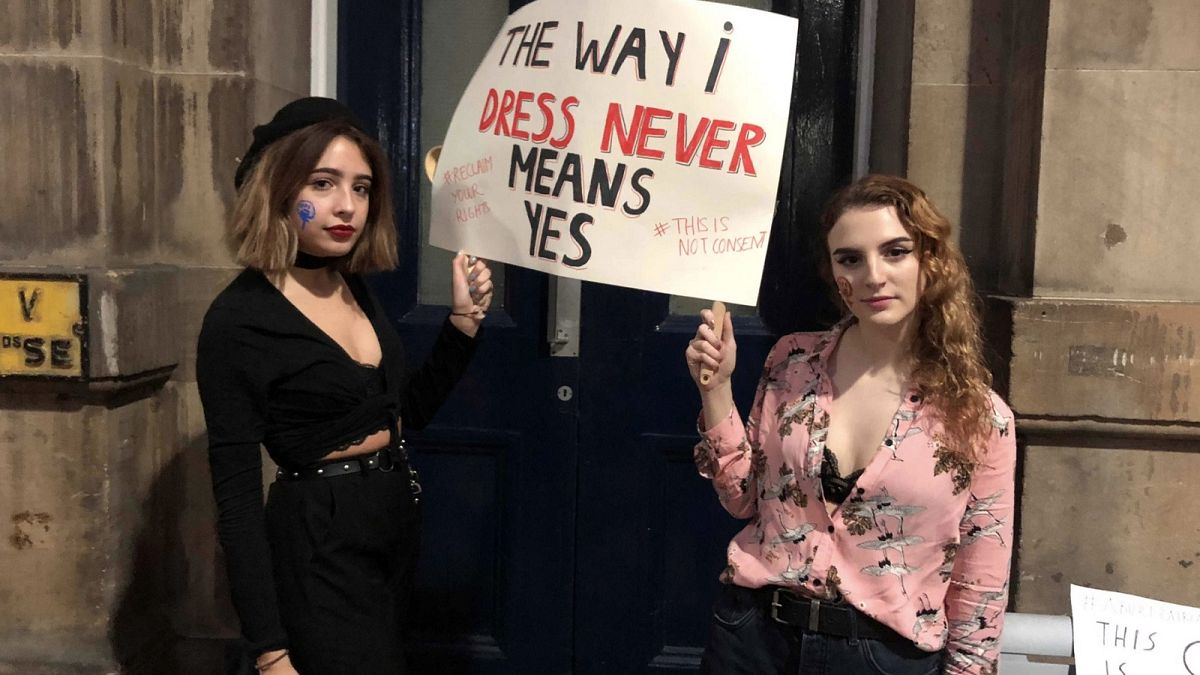As universities across Europe prepare open their doors for a new term, student Cara Balen warns of the danger of not recognising the importance of sexual consent on campus and beyond.
It is not easy to speak about rape, to go into the horrific detail of what happens and the devastating trauma it leaves behind. It is so hard that - as individuals and as a society - we often shy away from the subject altogether.
But, as hard as it is, we need to talk about rape.
A recent European Union-wide survey suggests that one in 20 women aged 15 and over in the EU have been raped. That is around nine million women. A British study last year found that one in 10 women said they were raped while at university.
As a university student, I have come to realise that many young people are not clear in their own minds about what constitutes rape or sexual assault. There are too many ‘blurred lines’, or ‘grey areas’ and – unlike other crimes such as theft, or assault or fraud - many of us seem to be unclear about what counts as rape.
But despite this confusion, the actual definition of rape should be very straightforward. Namely, rape occurs when one person intentionally penetrates another’s vagina, anus or mouth without the other person’s consent.
Simple. A sexual act becomes unlawful when it is carried out without the other person’s consent.
Yet, even though the legal definition of rape in international standards appears straightforward, it seems that it has not become fully recognised by society.
Research also revealed that more than one in four people in the EU believe that sexual intercourse without consent may be justified in certain circumstances, such as if the victim is drunk or under the influence of drugs, voluntarily going home with someone, wearing revealing clothes, as well as not saying "no" clearly or not fighting back.
These disturbing findings are perhaps not so surprising given the fact that only nine countries in the European Economic Area (EEA) currently recognize that sex without consent is rape. Laws in other European countries focus instead on resistance and violence rather than on consent. The assumption that a victim gives her consent because she has not physically resisted is deeply problematic since "involuntary paralysis" or "freezing" has been recognized by experts as a very common physiological and psychological response to sexual assault.
Flawed and outdated definitions of rape perpetuate a dangerous culture of victim blaming across the continent. Women’s fear of not being believed is confirmed time and time again, as we see courageous survivors who do seek justice frequently failed by outdated and harmful definitions of rape in law.
But definitions are not enough. Whilst the law in Britain may be clear that sex must be consensual, this does not always translate into day to day life. The popularisation of "lad" culture in British universities, which promotes hypermasculinity and the glorification of sexual conquests, perpetuates the idea that male students should have access to women’s bodies for their own gratification.
This, along with the "boys will be boys" mentality, warps sex into being the preserve of men, done by men to women, without regard for the woman’s sexual happiness or well-being. This toxic culture that encourages men to view women as passive sex objects needs to be addressed.
Many people believe that rape occurs only when one person is struggling and actively saying no. This is not the case. If there is no consent it is rape, even if the victim stays quiet and does not resist.
It is also essential to realise that consent is not merely about not saying no – it is about the power to say yes. Furthermore, it is the ability to change your mind as consent is an ongoing process rather than a one-time statement. Consent is empowering, as it gives each and every person power over their own body; to either willingly engage in sexual acts or to stop before they start to feel uncomfortable. Any sexual act that goes against these principles is unlawful and knowing this is important.
It is for this reason that Amnesty International’s ‘Let’s Talk about Yes!’ campaign is so necessary today. This campaign focuses on the significance of consent, and the fact that it is actively given, rather than assumed from someone’s passivity.
This campaign is about reclaiming our right to do only what we want to do in the bedroom – or anywhere else - with the knowledge that actively giving our consent holds a lot of weight in the eyes of the law.
Consent is a very powerful thing, but we need to know how it works so that we all can use it to feel safe and happy.
As a new university term begins and young men and women arrive in halls and on campuses across the continent, it is vital that these are safe spaces for them to learn and love.
Let’s not be afraid to talk about rape and the real meaning of consent.
Cara Balen is a student member of Amnesty International
_________
Are you a recognised expert in your field? At Euronews, we believe all views matter. Contact us at view@euronews.com to send pitches or submissions and be part of the conversation.

